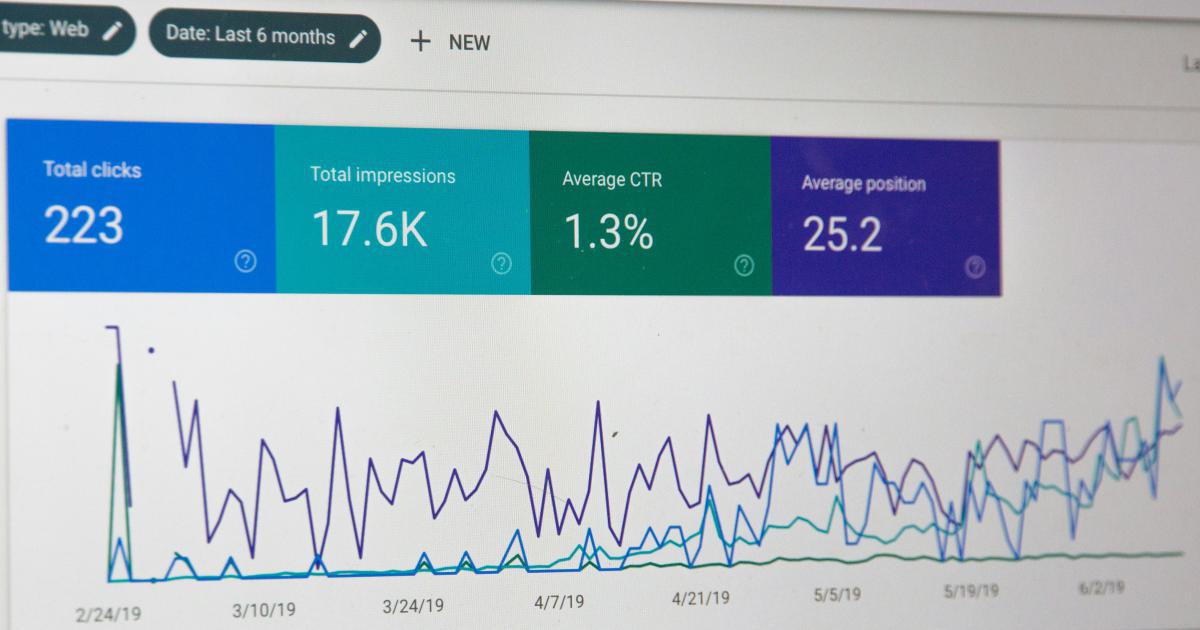Mastering Content Optimization for Specific Industry Niches


Understanding the Importance of Content Optimization
In today's digital landscape, content is the lifeblood of any successful online strategy. Whether you're a small business owner, an industry thought leader, or a marketer looking to drive more traffic and engagement, optimizing your content for specific industry niches is crucial. By tailoring your content to the unique needs and preferences of your target audience, you can effectively cut through the noise, establish your authority, and ultimately drive measurable results.
Content optimization is the process of refining and enhancing your content to ensure it is easily discoverable, engaging, and aligned with the specific needs of your industry. This involves a comprehensive approach that spans keyword research, on-page optimization, content structure, and strategic distribution. By mastering these techniques, you can position your brand as a trusted resource and outperform your competitors in your respective niche.
The Power of Niche-Specific Content Optimization
In today's competitive digital landscape, standing out from the crowd is no easy feat. Consumers are bombarded with countless pieces of content, each vying for their attention. To cut through the noise and capture the interest of your target audience, it's essential to hone in on the specific needs, pain points, and preferences of your industry niche.

By optimizing your content for your niche, you can:
Enhance Discoverability: Niche-specific keyword research and on-page optimization ensure your content is easily found by your target audience when they're actively searching for information related to your industry.
Establish Authority: Providing in-depth, valuable, and industry-specific content positions you as a credible expert, building trust and loyalty with your audience.
Improve Engagement: Tailoring your content to the unique needs and interests of your niche audience increases the likelihood of it resonating with them, leading to higher engagement, shares, and conversions.
Outperform Competitors: By focusing on your industry's specific needs, you can create content that stands out from the generic, one-size-fits-all approach of your competitors.
Drive Measurable Results: Optimized niche-specific content is more likely to attract the right audience, generate leads, and ultimately contribute to your overall business goals.
Conducting Comprehensive Keyword Research
Effective content optimization starts with thorough keyword research. By identifying the keywords and phrases that your target audience is actively searching for, you can ensure your content is optimized to be found by the right people at the right time.
Identifying Industry-Specific Keywords
Begin by brainstorming a list of keywords and phrases that are directly related to your industry, products, or services. Consider the specific problems, pain points, or questions your target audience is looking to solve. These could include:
- Industry-specific terminology or jargon
- Common questions or queries your customers ask
- Product or service-related keywords
- Competitor brand names or industry leaders

Once you have a solid foundation of industry-specific keywords, use online tools like Google Keyword Planner, SEMrush, or Ahrefs to expand your list. These tools can provide valuable insights into search volume, competition, and related keyword ideas.
Analyzing Search Intent
It's not enough to simply identify a list of keywords – you also need to understand the search intent behind them. Is the user looking to learn, buy, or compare products and services? Tailoring your content to match the user's intent can significantly improve its relevance and effectiveness.
For example, a user searching for "best accounting software for small businesses" likely has a buying intent, while someone searching for "how to choose an accounting software" is more likely in the research or information-gathering stage.
Prioritizing High-Impact Keywords
With a comprehensive list of industry-relevant keywords, it's time to prioritize the ones that are most likely to drive valuable traffic and engagement. Consider the following factors when evaluating keyword opportunities:
Search Volume: Focus on keywords with a healthy search volume, indicating consistent user interest.
Relevance: Ensure the keywords are closely aligned with your industry, products, or services.
Competition: Evaluate the level of competition for each keyword to identify opportunities where you can stand out.
Conversion Potential: Prioritize keywords that are more likely to lead to conversions, such as those with a buying intent.
By conducting thorough keyword research and understanding the search intent behind your target keywords, you can lay the foundation for creating highly optimized, industry-specific content that resonates with your audience.
Optimizing Your Content for Your Industry Niche
Once you've identified the most promising keywords for your industry, it's time to put them into action by optimizing your content. This process involves a multifaceted approach that covers on-page optimization, content structure, and strategic distribution.
Implementing On-Page Optimization
On-page optimization refers to the techniques you employ within your content to improve its visibility and relevance to search engines. This includes:
Keyword Placement: Strategically incorporate your target keywords throughout the content, including the title, headings, introduction, and body text. Avoid keyword stuffing, and instead, focus on natural, contextual usage.
Meta Tags: Ensure your title tags, meta descriptions, and image alt text include your target keywords to enhance discoverability.
Content Structure: Use clear and logical headings (H1, H2, H3) to organize your content and make it easier for both users and search engines to navigate.
Multimedia Integration: Complement your written content with relevant images, videos, or infographics that reinforce your key messages and provide additional value to your readers.

Crafting Engaging and Informative Content
Moving beyond technical optimization, it's crucial to focus on creating content that is genuinely valuable and engaging for your industry-specific audience. This means:
Addressing Pain Points: Identify the most pressing challenges, questions, or concerns your target audience is facing, and create content that provides comprehensive solutions.
Leveraging Expert Insights: Incorporate expert opinions, industry data, and real-world examples to strengthen the credibility and authority of your content.
Maintaining a Consistent Tone: Ensure your content voice and style align with the preferences and expectations of your industry niche, whether that's formal and academic or conversational and relatable.
Driving Actionable Takeaways: Provide readers with clear, actionable steps or recommendations they can implement to address their specific needs.
By combining technical optimization with genuinely valuable and engaging content, you can create a powerful combination that resonates with your industry-specific audience.
Distributing Your Content Strategically
Once you've optimized your content, it's time to ensure it reaches the right people. Effective content distribution involves a multi-channel approach:
Search Engine Optimization (SEO): Optimize your website and content for search engines to improve organic discoverability.
Social Media Promotion: Share your content across relevant industry-specific social media platforms, leveraging hashtags and engaging with your target audience.
Email Marketing: Build an email list of industry contacts and send regular updates, newsletters, or targeted content to keep your audience engaged.
Influencer Partnerships: Collaborate with industry influencers or thought leaders to leverage their audience and credibility.
Guest Posting: Contribute guest articles to relevant industry-specific publications to expand your reach and build authority.

By strategically distributing your optimized, industry-specific content across multiple channels, you can maximize its visibility and ensure it reaches the right people at the right time.
Measuring and Optimizing Your Content Performance
Effective content optimization is an ongoing process that requires continuous monitoring and refinement. By regularly analyzing the performance of your industry-specific content, you can identify areas for improvement and make data-driven decisions to enhance your overall strategy.
Tracking Relevant Metrics
Focus on tracking the following metrics to gauge the success of your content optimization efforts:
Organic Traffic: Monitor the amount of traffic your content is driving from search engines, as this is a key indicator of its discoverability and relevance.
Engagement Rates: Measure metrics like time on page, bounce rate, and social shares to understand how your audience is interacting with your content.
Conversion Rates: Track the conversion of your content into desired actions, such as lead generation, sales, or sign-ups.
Backlinks and Referring Domains: Monitor the number of high-quality backlinks your content is earning, as this can signal increased authority and credibility.
Competitor Analysis: Regularly benchmark your content performance against your industry peers to identify areas for improvement and opportunities to outshine the competition.

Continuously Optimizing and Refining
Use the insights gained from your performance tracking to continuously refine and optimize your content strategy. This may involve:
Keyword Refinement: Identify new keyword opportunities or adjust your targeting based on performance data.
Content Optimization: Revise on-page elements, improve content structure, or create new, more engaging content formats.
Distribution Strategies: Experiment with different channels, tactics, or influencer partnerships to maximize your content's reach and engagement.
Audience Segmentation: Analyze user behavior and interests to create more personalized, targeted content for specific segments of your industry niche.
Competitive Analysis: Study the strategies and content of your top competitors to uncover new ideas and opportunities to set your brand apart.
By consistently measuring, analyzing, and optimizing your industry-specific content, you can ensure your efforts continue to deliver tangible results and keep your brand at the forefront of your niche.
Conclusion
In today's crowded digital landscape, mastering content optimization for specific industry niches is essential for standing out, establishing authority, and driving measurable results. By conducting comprehensive keyword research, implementing robust on-page optimization, creating genuinely valuable and engaging content, and strategically distributing your content across multiple channels, you can effectively reach and captivate your target audience.
Continuous monitoring, analysis, and refinement of your content optimization strategies will ensure your brand remains at the forefront of your industry niche, outperforming your competitors and solidifying your position as a trusted and influential voice in your field.
Are You Crushing It in Internet Marketing?
Struggling to boost your online visibility and traffic? Semrush is the ultimate platform for digital marketers like you. With powerful SEO tools and competitive data insights, you can optimize your website, content, and campaigns for maximum impact.
Join over 7 million marketers already using Semrush to outrank their competitors, drive more qualified leads, and grow their businesses online. Get started today with a 7-day free trial, and unlock the full potential of your internet marketing strategy.
Unlock the Power of SEO with Semrush
Are you struggling to boost your online visibility and drive more traffic to your website? Semrush has the solution.
Our comprehensive platform offers advanced keyword research, competitor analysis, and SEO audits, empowering you to optimize your content and outrank your competition.